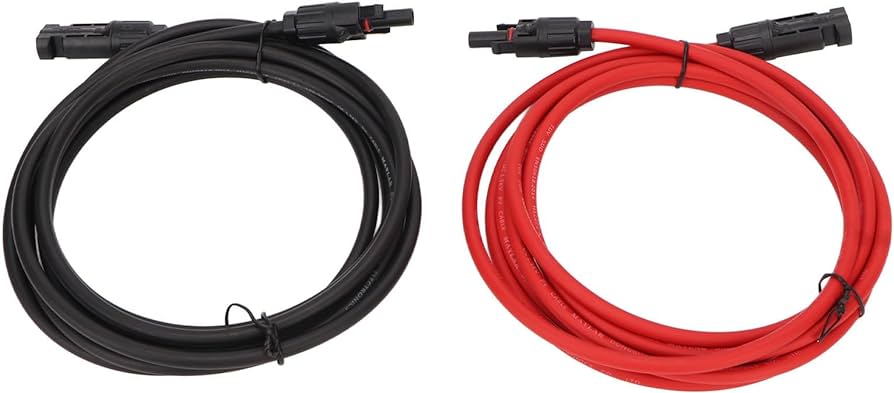As the world moves towards renewable energy solutions, solar power systems have become increasingly popular for both residential and commercial use. A critical component in any solar power setup is the solar cable extension. These solar panel extension cable play a vital role in ensuring the efficient and safe transmission of electricity from solar panels to the rest of the system. This article will delve into the importance of solar cable extensions, their types, and how to choose the right one for your solar power system.
Importance of Solar Cable Extensions
Solar cable extensions are essential for connecting solar panels to the various components of a solar power system, including inverters, batteries, and charge controllers. They facilitate the transmission of the electrical current generated by the solar panels to these components, ensuring that the energy can be effectively stored or used.
One of the primary reasons for using solar cable extensions is to maintain the optimal performance of a solar power system. These cables are designed to withstand harsh environmental conditions, such as extreme temperatures, UV radiation, and moisture. This durability is crucial for ensuring the longevity and reliability of the solar power system.
Types of Solar Cable Extensions
There are several types of solar cable extensions available, each designed for specific applications within a solar power system. The most common types include:
- PV (Photovoltaic) Cables: These are specifically designed for connecting solar panels to the rest of the solar power system. PV cables are known for their high resistance to UV radiation and extreme weather conditions. They come in various sizes and lengths to accommodate different system configurations.
- MC4 Extension Cables: MC4 connectors are a popular choice for solar panel installations due to their ease of use and reliability. MC4 extension cables are pre-assembled with MC4 connectors on both ends, making them ideal for quick and secure connections between solar panels and other components.
- Battery Extension Cables: These cables are used to connect the solar power system to the battery bank. They are typically thicker than PV cables to handle the higher current that flows between the batteries and the inverter.
- Inverter Extension Cables: These cables connect the solar panels or battery bank to the inverter. They are designed to handle the high power output from the inverter to the electrical grid or home appliances.
Choosing the Right Solar Cable Extension
Selecting the appropriate solar cable extension for your system involves considering several factors:
- Cable Size and Length: The size and length of the cable are critical for minimizing power loss and ensuring efficient energy transmission. Thicker cables with lower gauge numbers are generally better for longer distances as they reduce resistance and voltage drop.
- Insulation and Durability: Look for cables with high-quality insulation that can withstand UV radiation, extreme temperatures, and moisture. This ensures the cables remain functional and safe over the long term.
- Connector Compatibility: Ensure that the connectors on the extension cables are compatible with your solar panels and other components. MC4 connectors are widely used, but it’s essential to check compatibility before purchasing.
- Regulatory Compliance: Choose cables that comply with local and international safety standards. This ensures that the cables meet the necessary safety and performance requirements.
Installation and Maintenance
Proper installation of solar cable extensions is crucial for the safety and efficiency of your solar power system. It is recommended to hire a professional installer who is experienced in solar power systems to ensure that the cables are correctly installed and securely connected.
Regular maintenance is also essential to keep the cables in good condition. Inspect the cables periodically for signs of wear, damage, or corrosion. Clean the connectors to prevent dirt and debris from affecting the connections.
